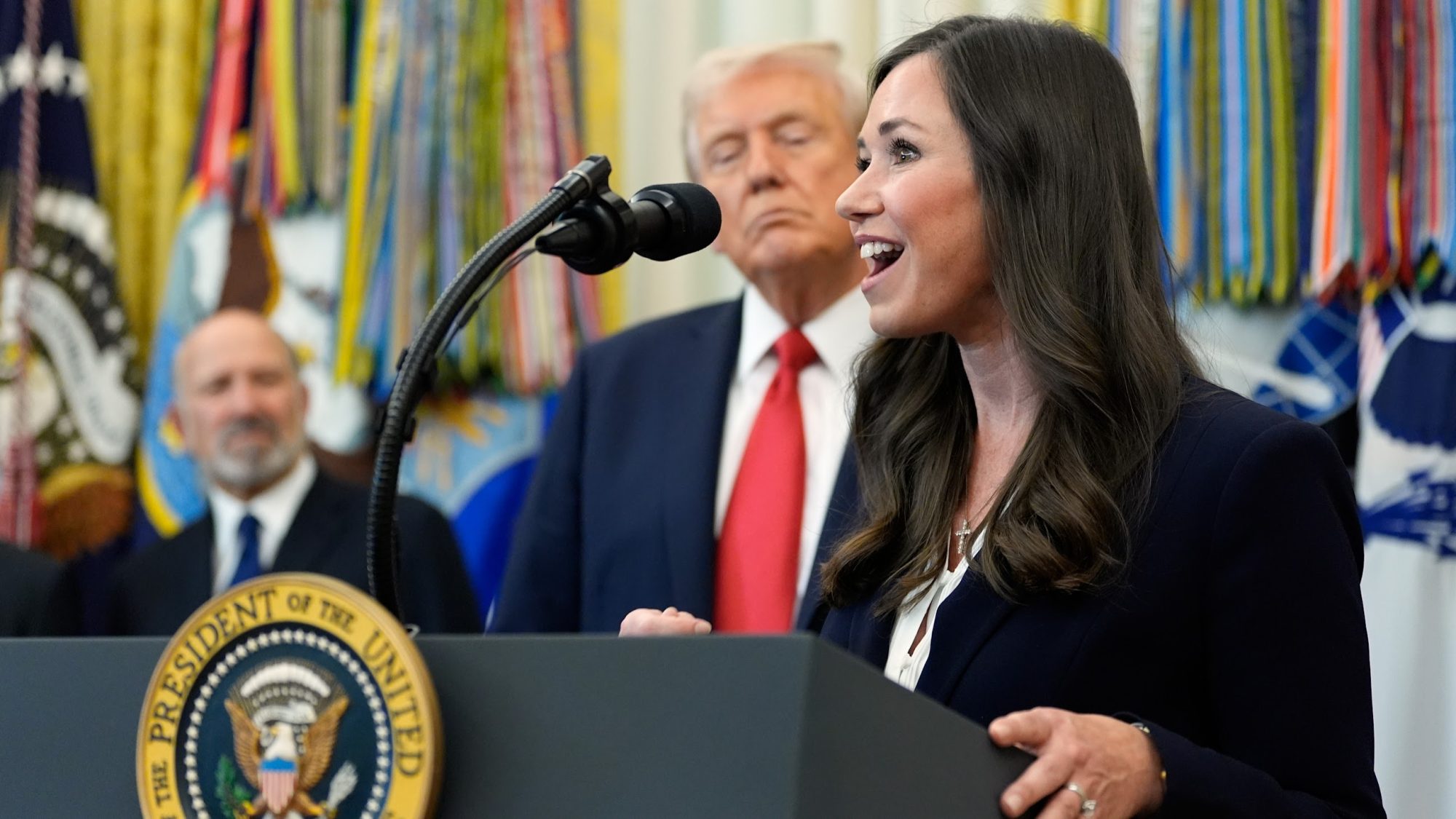In the Oval Office on Thursday, several Cabinet members and advocates for in vitro fertilization (IVF) gathered to claim that President Donald Trump was delivering on his campaign trail pledge to radically expand access to the popular but expensive process for getting pregnant. In reality, Thursday’s announcement falls far short of Trump’s prior promise to make IVF free.
Trump announced two steps that the government will take to try to bring down the costs of the treatment, which can reach up to $20,000 per cycle. The first is entering a cost-cutting agreement with EMD Serono, a leading fertility medication manufacturer, to slash prices on Gonal-f, an injectable drug involved in the IVF process. The second is creating a new fertility insurance benefit that employers could voluntarily adopt to offer to employees, just like they do with dental or vision insurance.
Officials in the Oval Office cast the news as a historic precursor to the baby boom that Republicans so desperately want. Sen. Katie Britt (R-Ala.), who Trump credits with teaching him what IVF actually is, called the president’s actions the “most pro-IVF thing a president has ever done.” Mehmet Oz, the ex-TV doctor and current administrator of the Centers for Medicare and Medicaid Services (CMS) at the Department of Health and Human Services, chillingly predicted: “I know what you’re all thinking, and you’re probably right: There are going to be a lot of Trump babies. I think that’s probably a good thing.”
These moves could, indeed, have some benefits to Americans seeking to get pregnant using IVF. Oz’s CMS estimates the drug agreement will save users of the fertility medications, which can cost several thousand dollars, up to $2,200 per cycle, the White House says. The drugs will be available directly to consumers on the (subtly-named) trumprx.gov, with additional discounts available to low-income women. Only a quarter of companies with 200 or more employees currently offer IVF coverage, according to KFF, and more than 40 percent of American adults say they or someone they know have used fertility treatments, according to Pew Research. The Labor, Treasury, and HHS departments issued guidance on Thursday for how employers can offer the benefits, and will propose additional pathways in the future, officials said.
It’s unclear how many employers will actually provide the fertility benefit—especially since the government will not subsidize it.
But all in all, the Thursday White House announcement is no substitute for Trump’s campaign trail promise that he would force the government or private insurance companies to fund IVF—a move that would reportedly have cost an estimated $8 billion, or about 40 percent of the price tag on Trump’s recent bailout of Argentina.
While campaigning last year, in the midst of concerns about whether mounting abortion restrictions would imperil IVF access, which often involves discarding embryos, Trump told NBC News: “We are going to be, under the Trump administration, we are going to be paying for that treatment,” he said, adding, “We’re going to be mandating that the insurance company pay.” Thursday’s announcement does not do any of this.
Back in August, anonymous officials told the Washington Post that they had dropped hopes for those plans because it would require an act of Congress to make IVF an essential benefit that insurance companies must cover—a surprising rationale from a White House that seems to be otherwise unconcerned with securing congressional approval. (A bill last year, the HOPE with Fertility Services Act, introduced by then-Rep. and current Labor Secretary Lori Chavez-DeRemer, would have done just that. The bill has not yet been re-introduced in this session of Congress.) And as the New York Times pointed out earlier Thursday, when it first reported news of the IVF announcement, it is unclear how many employers will actually provide the fertility benefit—especially since the government will not subsidize it.
Sean Tipton, chief advocacy and policy officer at the American Society for Reproductive Medicine, a research and advocacy organization, told me that “there’s still a lot of details to grapple with before we can really say how beneficial” the new actions will be. But he added: “I do think it’s important that a Republican White House got all the relevant Cabinet secretaries together to say a lot of positive things about IVF.”
Sen. Britt, Tipton said, “was not exaggerating” when she praised Trump’s efforts as historic—”but that also shows what a low bar it is,” he added.

Tipton also reiterated a couple of other ways that, as he previously told me, Trump could have dramatically expanded IVF access: Requiring fertility coverage for federal workers through the Federal Employees Health Benefits Program and mandating IVF coverage by TRICARE, the military health insurance program used by more than 9 million active service members, retirees, and their families. “As the CEO of a big employer, the president should make sure all his employees have access to care,” Tipton said.
Spokespeople for the White House did not immediately respond to questions from Mother Jones on Thursday.
Trump has a lengthy history of unfulfilled promises on IVF. Back in February, Trump signed an executive order that the White House claimed was “expanding access” to fertility treatments—but all that it actually did was deputize a government official to deliver to Trump, within 90 days “a list of policy recommendations on protecting IVF access and aggressively reducing out-of-pocket and health plan costs for IVF treatment,” as I wrote at the time.
And even after that 90-day deadline, which fell in May, came and went, the White House failed to release that report publicly. In the middle of that period, in April, mass firings at HHS led to the elimination of a six-person team working on expanding access to assisted reproductive technology, including IVF, at the Division of Reproductive Health at the Centers for Disease Control and Prevention, as I reported.
Mini Timmaraju, president and CEO of the advocacy organization Reproductive Freedom for all, called Trump’s announcement an effort “to gaslight the American public into believing he’ll deliver on empty campaign promises.”
Danielle Melfi, CEO of RESOLVE: The National Infertility Association, struck a different tone, calling Trump’s announcement “an important step forward on the road to ensuring all Americans can access the care they need to build the families of their dreams.”
But as Tipton put it: “There is a lot of work for the President to do to make good on his campaign promise to make sure that every American who needs help building their families can get that help.”














